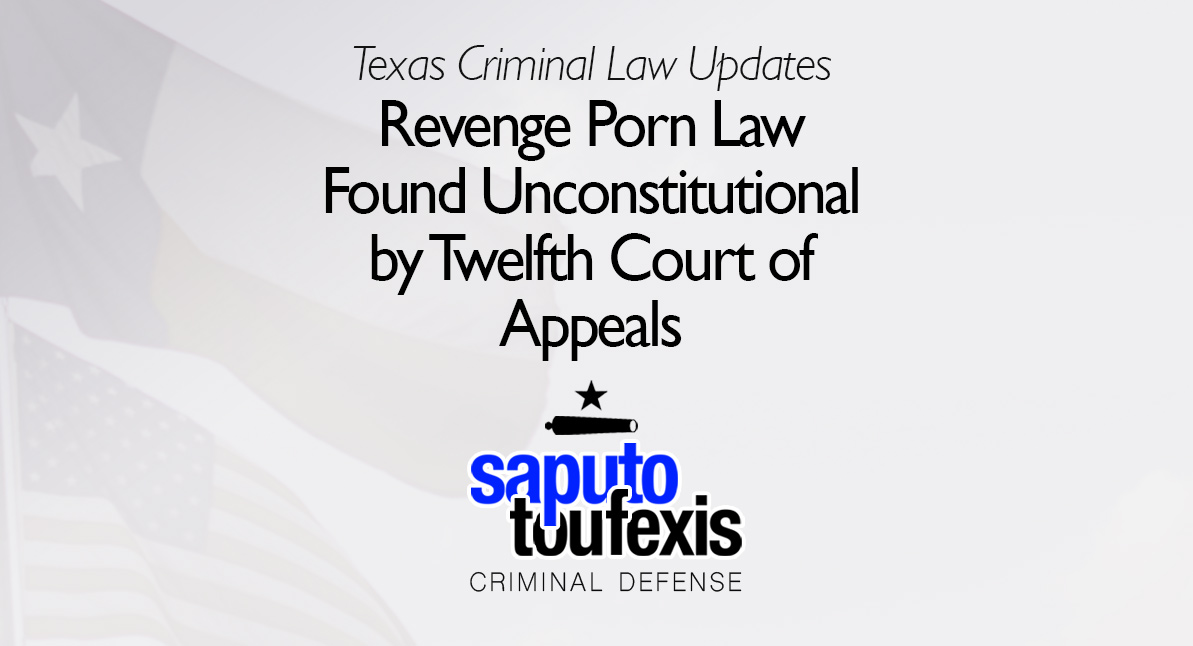The Twelfth Court of Appeals in Tyler, Texas, has recently ruled that subsection (b) of the state’s new Revenge Porn law (Unlawful Disclosure or Promotion of Intimate Visual Material) is unconstitutional.
The state has not yet filed a petition of discretionary review to the Texas Court of Criminal Appeals. The law is also being reviewed on constitutional challenges in Beaumont, Waco, and Houston.
We expect to be joining in similar challenges soon. Learn more about the Revenge Porn law
The Tyler appellate court concluded:
We have concluded that Section 21.16(b) is an invalid content-based restriction and overbroad in the sense that it violates rights of too many third parties by restricting more speech than the Constitution permits. Accordingly, we hold that Texas Penal Code, Section 21.16(b), to the extent it proscribes the disclosure of visual material, is unconstitutional on its face in violation of the Free Speech clause of the First Amendment.
Read the full opinion by the court here
What effect does this have?
First of all, if you have been charged under this statute, your attorney should file pretrial writs of habeas corpus or motions to dismiss, or another appropriate action, as the case may apply to you.
Secondly, prosecutions under subsection (b) in a district covered by the Twelfth Court of Appeals should immediately cease. Note that this may not necessarily happen immediately. Because the law has not beed held unconstitutional in other areas (yet), prosecutions will likely continue.
Third, expect appellate litigation to continue. I highly doubt we have heard the last development regarding this law. As always, I will try to update the appropriate penal code section page along with this post as we get opinions.
Fourth, if the law is ultimately held unconstitutional, expect a response by the Texas state legislature. They will likely amend the law to make it more palatable to the judiciary by ameliorating the 1st amendment overbreadth problems.
But see subsections (c) and (d)
Penal code 21.16 actually contains two other ways to violate the Revenge Porn law. Subsections (c) and (d) are independent of subsection (b), and each of them describe a separate violation of 21.16. Only subsection (b) has been held unconstitutional so far. I would expect to see similar challenges to subsections (c) and (d), but in the meantime, prosecutors will likely seek prosecutions under these unaffected subsections.








